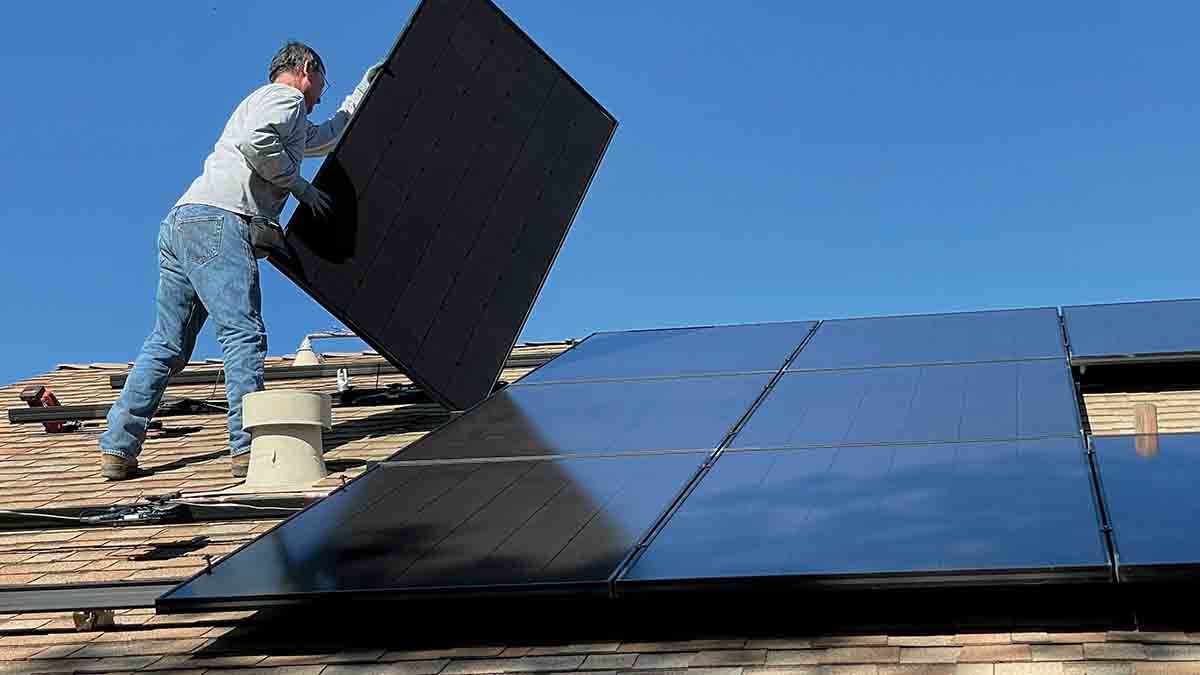BY JOHN ELLIS, FINANCIAL ADVISOR

In their recent 2024 Annual Review, the Climate Change Advisory Council has laid out detailed observations and recommendations aimed at transforming the ‘Built Environment Sector’. This sector includes all residential, commercial, and public buildings which continues to be a significant contributor to emissions, primarily due to fossil fuels use for heating spaces and water.
Yet, emissions across the sector continued to fall in 2023. The Environmental Protection Agency (EPA) reported a 7.1% reduction in emissions from residential buildings, bringing the total down to 5.35 million tonnes of CO2 equivalent. Factors contributing to this decline included high fuel prices, a relatively mild winter, new Solid Fuel Regulations, and increased fuel switching and energy efficiency measures.
The report also notes significant progress in retrofitting activities. In 2023, there was an almost 80% increase in the number of properties using grants for retrofitting, with 47,953 Sustainable Energy Authority of Ireland (SEAI)-supported upgrades compared to 27,200 in 2022. Local authority-funded retrofits also saw an increase from 2,283 in 2022 to 2,445 in 2023.
Heat pumps have emerged as a promising solution, with 71,000 households already using them, according to the 2022 Census. In 2023, an additional 3,769 heat pumps were installed through national home retrofit programs. These systems are technically suitable for an estimated 78% of residential buildings without further energy efficiency improvements.
The council highlighted the need for additional financial support for lower-income households. “The Government needs to provide further financial support for lower-income households that are unable to afford a deep retrofit with the existing home energy upgrade schemes and low-cost loans.”
To further drive down emissions, the council recommends additional incentives to renovate existing vacant and derelict buildings. Using low-carbon materials such as timber in these renovations is also encouraged.
But much more needs to be done to sustain and accelerate this progress and the council has suggested certain “critical areas” where immediate action is needed. “There is an urgent need to reduce and ultimately end reliance on fossil fuels for heating,” the council said. The Government is urged to incentivise homeowners, especially those in newer or “heat pump-suitable” homes to replace oil and gas boilers with heat pumps.
Despite the progress, much work remains to be done says the report. It states the residential sector is on track to meet its first sectoral emissions ceiling, but the money needed to maintain this trajectory will be astronomical adding what we do not know.
Take the proposed Tallaght District Heating Network and the Dublin District Heating Scheme, it is projected to be operational by 2030 and then only deliver a mere 2.8% of the national target.
The recommendations may lay out a clear roadmap for reducing emissions but the population needs to be engaged in a more active way if they are to get on board mentally and financially.
086 8362633

















